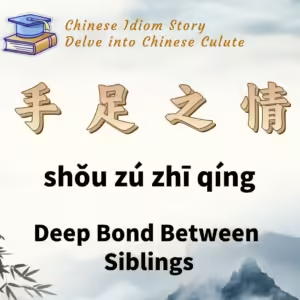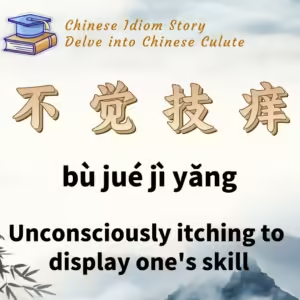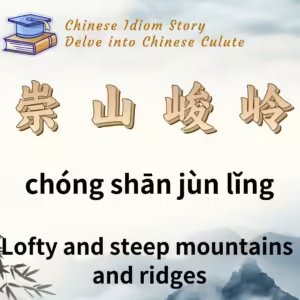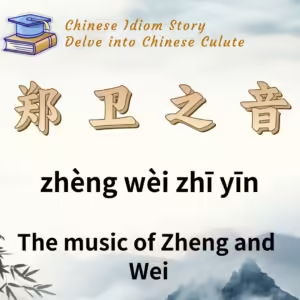
Chinese Idiom: 高山流水 (Gao Shan Liu Shui)
English Translation: Lofty mountains and flowing water
pīn yīn: gāo shān liú shuǐ
Idiom Meaning: This idiom refers to a deep bond between kindred spirits or close friends (知己, zhī jǐ) who truly understand each other, often referred to as “知音” (zhī yīn). It can also be used to describe beautiful and harmonious music.
Historical Source: Liezi (《列子》) – Questions of Tang (《汤问》)
Idiom Story:
During the Spring and Autumn period, a highly skilled musician named Yu Boya was famous for his mastery of the guqin (a traditional Chinese string instrument). Though he had studied with a renowned teacher and reached a high level of proficiency, Boya still felt that he couldn’t fully express his emotions and perceptions through his music.
Noticing his student’s frustration, Boya’s teacher decided to take him on a journey to the Penglai Island in the East China Sea. There, Boya was surrounded by the beauty of nature: the waves crashing on the shore, birds soaring in the sky, and the lush, vibrant greenery of the forests. As Boya absorbed these natural wonders, he felt a deep connection to the world around him. Inspired by this, he began to play his guqin, and his music effortlessly reflected the majesty and harmony of nature. His teacher, upon hearing this, said, “You have mastered it.”
One evening, while Boya was sailing on a boat, enjoying the breeze and the moonlight, he felt an urge to express his thoughts and emotions through music once again. As his guqin’s melodies filled the air, they became more and more sublime. Suddenly, from the shore, someone praised the beauty of his music. Surprised, Boya stepped out of the boat and found a woodcutter standing on the riverbank.
Realizing that this man could truly appreciate his music, Boya invited the woodcutter, whose name was Zhong Ziqi, onto his boat. With great enthusiasm, Boya continued to play. When Boya played a piece depicting the grandeur of towering mountains, Zhong Ziqi exclaimed, “How magnificent! It sounds just like the majestic Mount Tai, rising into the clouds!” When Boya played a piece representing the rush of flowing water, Zhong Ziqi responded, “How vast and powerful! I feel as though I can see the surging currents and the boundless sea!”
Overwhelmed with excitement, Boya said, “You are indeed my true friend, my Zhi Yin!” From that moment, the two became close friends, as Zhong Ziqi was the only one who could fully understand Boya’s music.
After Zhong Ziqi passed away, Yu Boya was so heartbroken that he never played the guqin again, as he believed no one else could ever understand him as Zhong Ziqi had. This story gave rise to the idiom “高山流水,” symbolizing the rare and cherished bond between true kindred spirits and highlighting the beauty of music that resonates with one’s soul.






